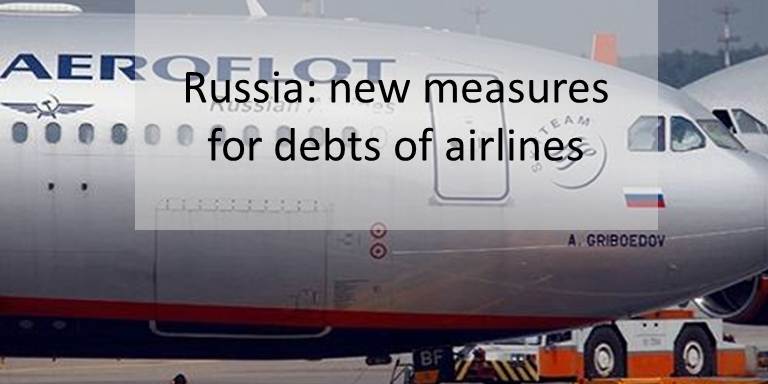Recently it was announced that the Russian Ministry of Transport and the Analytical Center of the Government of Russia have prepared a draft of criteria for the evaluation of the economic and financial state of Russian airlines. According to the Ministry, this initiative is aimed at the improvement of the effectiveness of the control over Russian airlines. Thus, in this article we’ll consider, what changes might occur in the near future in the airline industry and the reasoning behind such governmental reaction.
The proposed changes. According to the incoming criteria, all of the airlines will presumably be divided into the following three categories: acceptable, moderate, and high levels of debt. In the future, in case of the deterioration of the basic indicators of activity of the carrier, that can affect flights safety or rights of passengers, powers listed in the air operator certificate (a license, confirming the airline’s compliance with the requirements of relevant Russian and international legislation and entitling it to carry out certain commercial air transportation) will be gradually confined. The list of core criteria is also going to be enlarged with several new parameters: the ratio of net debt to operating profit before depreciation (EBITDA), quality of liquid assets and its conformity with short-term liabilities.
The cause of the preparation of the new criteria’s draft .The Ministry mentioned that the revision of the criteria was aimed at early detection of risks and prevention of situations like the one which happened with “VIM-Avia”. The airline “VIM-Avia” was founded in 2002 on the territory of the Republic of Tatarstan and for a long time it occupied quite a high place in the ranking of Russian air carriers, although certain violations in its activities also took place. \The first time it was confronted with problems was in the year 2016, when the Federal Air Transport Agency issued a warning about the possibility to impose limitations on the certificate of the operator in connection with mass delays. However, the company managed to quickly stabilize the situation. Later in 2017, the company faced troubles again, when, after delays in late May, dozens of flights were canceled. On this occasion, the company took three weeks to resolve the situation. However, very soon after this incident, on September 26th, 2017, the “VIM-Avia” ceased all charter and scheduled flights. At that time, according to the data of Russian Federal Agency for Tourism, about 38 thousand of its passengers remained stranded abroad.
In response to this situation, the Government of the Russian Federation emphasized the insufficiency of existing evaluation criteria of the industry, since the crisis of the company presumably could have been prevented at an earlier stage if it was discovered in time. D’Andrea & Partners will continue to monitor the news in this area, so if you are interested in more information on the airlines and air services, please email us via info@dandreapartners.com.


